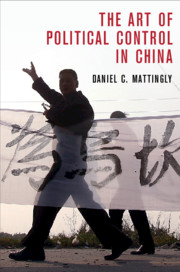 China is approaching “world domination” and Europe is neglecting the danger, according to the former head of Germany’s Federal Intelligence Service (BND).
China is approaching “world domination” and Europe is neglecting the danger, according to the former head of Germany’s Federal Intelligence Service (BND).
Europe “hardly notices” Beijing’s attempts to increase its power and influence, Gerhard Schindler told The Times. “China is going about things very cleverly, very quietly, but all the same with an astonishingly consistent strategy,” he said.
“Our stance towards China has been dominated by business relations. We need to reconsider that. ….But you can’t ease this dependence by becoming more dependent; we should strive to be less dependent.”
As we head into the third decade of this increasingly turbulent century, has China really found a sustainable model? Or is the Communist Party on yet another dead-end course like its adventures in Maoism in the last century, dizzy with success and prone to overreach at home and abroad? asks analyst Ian Johnson.
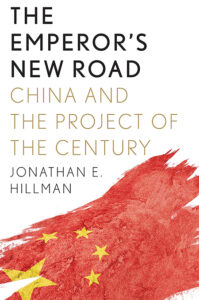 China’s leaders appear to be presented with a historic opportunity, he writes for The New York Review of Books:
China’s leaders appear to be presented with a historic opportunity, he writes for The New York Review of Books:
What many of them probably thought would take another decade or two of economic growth and steady military buildup now seems imminent: the West is imploding, and China’s rise is unstoppable. That worldview helps explain why it believes it can now take unapologetically tough positions on Hong Kong, border clashes with India, and Western criticism of its economic success stories, such as that new 5G data networks built by the tech giant Huawei will compromise their national security.
For decades political scientists have searched assiduously for signs in China of civil society, which many observers—from Alexis de Tocqueville to Robert D. Putnam—have argued can help build democratic structures, Johnson adds:
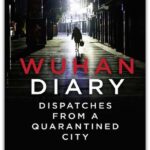 But in The Art of Political Control in China, the Yale political scientist Daniel C. Mattingly argues provocatively and persuasively that while civil society in China can occasionally organize opposition to the state, more often it does the opposite……Civil society makes clearer the desires, motivations, and interests of amorphous masses of citizens, which can help the state devise strategies to support its policies instead of spawning resistance.
But in The Art of Political Control in China, the Yale political scientist Daniel C. Mattingly argues provocatively and persuasively that while civil society in China can occasionally organize opposition to the state, more often it does the opposite……Civil society makes clearer the desires, motivations, and interests of amorphous masses of citizens, which can help the state devise strategies to support its policies instead of spawning resistance.
But people like Fang Fang – author of Wuhan Diary: Dispatches from a Quarantined City – still exist and show that China isn’t a monolith, Johnson concludes:
I would argue that collectively they present a real challenge to the government—not in the classic civil society sense of people who are likely to organize opposition; the party, as Mattingly argues, is too savvy to allow such opposition to form, and officials are much better at stifling dissent than they were a couple of decades ago. Instead, Fang Fang represents a significant group of people in China who see clearly the flawed nature of their state and who are willing to express these reservations in the most direct way they know.
What will Xi’s China do next?
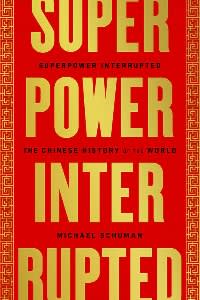 Three books shed light on the historical forces driving Beijing’s mission for superpower status — and what it means for Asia and beyond. each author shows in different ways — in China there is little daylight between historical resonance and future soundings, The FT’s James Kynge writes:
Three books shed light on the historical forces driving Beijing’s mission for superpower status — and what it means for Asia and beyond. each author shows in different ways — in China there is little daylight between historical resonance and future soundings, The FT’s James Kynge writes:
- In Superpower Interrupted: The Chinese History of the World, Michael Schuman, … identifies the founder of the Ming dynasty (1368-1644 AD), the Hongwu emperor, as the spiritual kin of Xi Jinping. Not only did both introduce a more personalised rule to the collegial model that prevailed before them, they also nursed a sense of victimhood to fuel fierce nationalism…
- The drawbacks inherent in this mentality become abundantly clear in Jonathan E Hillman’s Emperor’s New Road [which] refers to China’s Belt and Road Initiative (BRI). …. Adjusted for inflation, it is set to cost roughly seven times more than the Marshall Plan, through which the US helped rebuild Europe after the second world war. … But size is by no means everything. As the reader follows Hillman on a journey to several countries participating in China’s grand scheme, it becomes clear that the wheels are falling off the BRI….
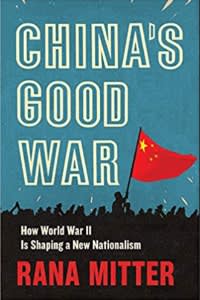 The title of Rana Mitter’s book, China’s Good War, is intended to be somewhat ironic. In human terms, China’s losses fighting Japan in the second world war are estimated to amount to at least 10m Chinese civilians and some 4m Chinese and Japanese soldiers. But the sense in which the war was “good” resides in the fact that China prevailed, allowing Beijing to participate in creating the postwar order.
The title of Rana Mitter’s book, China’s Good War, is intended to be somewhat ironic. In human terms, China’s losses fighting Japan in the second world war are estimated to amount to at least 10m Chinese civilians and some 4m Chinese and Japanese soldiers. But the sense in which the war was “good” resides in the fact that China prevailed, allowing Beijing to participate in creating the postwar order.
“Beijing now argues that China was a creator of the order that emerged in 1945, and that the threat to that order comes from the United States, not China,” Mitter writes. “China is creating a circuit of memory to enhance its standing and authority domestically and internationally, as well as to compete with the long-established circuit of memory that nurtures the narrative of the United States liberating the Asia-Pacific.” RTWT







